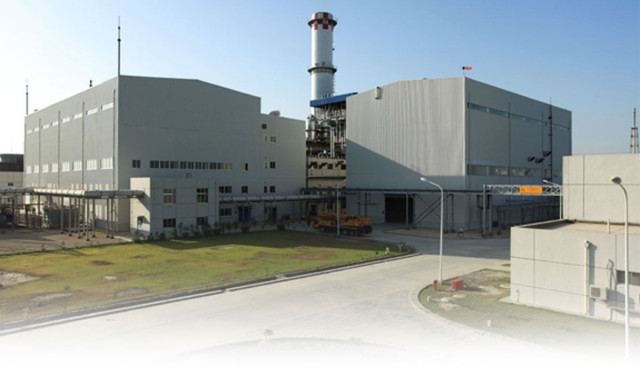Broadening services: Engro Powergen to check for gas compatibility
CEO says other petroleum fields could be utilised for low BTU gas.

Engro Powergen Qadirpur Limited – Pakistan’s only power plant that uses permeate gas as fuel – is carrying out an exercise to see if low BTU (British thermal unit) gas from other petroleum fields would be compatible with its equipment, a top company official told The Express Tribune on Monday.
A study has been initiated in collaboration with General Electric (GE) to determine the lower and upper range of gas’s BTU value that could work, said Syed Muhammad Ali, the chief executive officer, in an interview.
“That will allow us the flexibility to run the plant on different types of gas,” he said. “If there are other low BTU fields in the surrounding area, they can be utilised as well.”
However, he said that the company currently was not sure if other fields have the type of gas to spare.
Engro Powergen, a subsidiary of Engro Corporation, has a 217 MW power plant, which runs on high sulphur gas, basically a waste by-product, supplied from the Qadirpur Gas Field. The permeate gas was burned for years before the plant started using it in 2010.
About the depletion of Qadirpur field and the consequent cut in supply of permeate gas, Ali said that the mix of gas and diesel would be used to overcome the shortage, which will emerge in the coming years.
“This will be done up till the point when cost of generation reaches that of furnace oil. We will switch to furnace oil completely afterwards.” However, he said that such a shift was not expected for the next five years.
The company is also eyeing an IPO this month. It posted a profit of Rs1.46 billion in 2013, down 30.5% from Rs2.1 billion in the previous year, mainly because of a machinery malfunction that forced a 76-day shutdown.
Ali said that the problem with the plant’s rotor has been fixed. “We are expecting previous years’ profitability now.”
Engro Powergen has also ventured into the service sector by getting the operation and management contract for 84 MW captive power plant of a Nigerian oil refinery.
“This area is new for us but early signs are encouraging,” he said. “Right now, 14 employees have been deputed at the plant and more will join them as the project progresses.”
The company got the contract through one of its vendors, General Electric. “We told them that we have been operating your equipment for so many years and that it would be expensive for them to place their expats to operate them. So why don’t let us try.”
Between 2007 and 2011, Engro invested around $1.5 billion in projects that included the expansion of fertiliser, polymer plants and the Qadirpur power plant, piling a lot of debt on its balance sheet.
Diversifying its business into services, helps Engro continue its expansion but without such capital-intensive projects, Ali said.
Speaking about the proposed use of liquefied natural gas (LNG) by power plants, he said it remains the best possible way to keep the average power generation tariff at current 14 cents per kWh.
Regarding the fear that expensive imported LNG will add to losses as it enters the pipeline system replete with leakages, he said that most of the gas pilferage takes place in the distribution pipelines, which run through the cities.
“Power plants are connected with transmission pipelines, which do not suffer high degree of loss,” he said.
Another subsidiary of Engro is working on the country’s first LNG import terminal that is expected to start receiving shipments from next year. It is also a partner in Sindh Engro Coal Mining Company, which will spud coal from Tharparkar and build power plants to use it.
Ali said the issue of inter-corporate circular debt would have to be resolved to expedite work on coal-fired power plants that are being encouraged to deal with chronic power cuts.
“Almost all the financing is going to come from China for these projects and the investors are concerned about circular debt.”
International financial institutions and foreign banks have not shown interest in financing coal-fired power plants because of environmental issues, he said.
“Government would also need to spend money on power transmission lines. They only have spare capacity to handle 1000MW.”
Published in The Express Tribune, September 2nd, 2014.
Like Business on Facebook, follow @TribuneBiz on Twitter to stay informed and join in the conversation.


















COMMENTS
Comments are moderated and generally will be posted if they are on-topic and not abusive.
For more information, please see our Comments FAQ